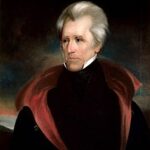The Nullification Crisis Decision
In 1832, South Carolina declared federal tariffs unconstitutional and void within state borders. President Andrew Jackson responded with unprecedented threats of military force. He obtained congressional authorization through the Force Act of 1833. Jackson privately threatened to hang nullification leaders including John C. Calhoun supporters. 💰 The crisis centered on protective tariffs that Southern states claimed favored Northern manufacturing interests.
Constitutional Confrontation
South Carolina’s Nullification Ordinance directly challenged federal authority over state governments. Jackson viewed this as treasonous rebellion against the Union. He mobilized federal troops and naval forces to Charleston harbor. The president’s aggressive response shocked even his political allies. ⚠️ Many believed Jackson exceeded constitutional limits on executive power during peacetime.
Compromise Resolution
Henry Clay’s Compromise Tariff of 1833 ultimately resolved the immediate crisis. South Carolina suspended its nullification ordinance in exchange for gradual tariff reductions. Jackson’s willingness to use military force demonstrated federal supremacy over individual states. However, the constitutional questions about presidential power remained unresolved. 📊 The crisis established precedents for future federal-state conflicts leading to the Civil War.
Impact:
Constitutional Precedent
The Nullification Crisis established dangerous precedents regarding presidential use of military force against states. Jackson’s threats normalized executive branch coercion in domestic political disputes. Future presidents would reference this crisis when asserting federal authority over state governments. 🔥 The unresolved constitutional tensions contributed directly to sectional conflicts culminating in the Civil War.
Political Consequences
Jackson’s aggressive response fractured the Democratic Party along regional lines. Southern Democrats began questioning federal government power and presidential authority. Northern Democrats supported Jackson’s strong unionist stance against nullification. The crisis accelerated the formation of the Whig Party opposition. Many former Jackson supporters joined Whigs due to concerns about executive overreach.
Long-term Effects
The crisis failed to resolve fundamental questions about federal versus state authority. Southern states remembered Jackson’s military threats during later secession debates. 📉 The precedent of presidential force against states became a rallying cry for states’ rights advocates. Constitutional scholars still debate whether Jackson’s actions exceeded proper executive limits. 🌍 International observers noted America’s internal divisions over federal power, questioning the nation’s long-term stability.
